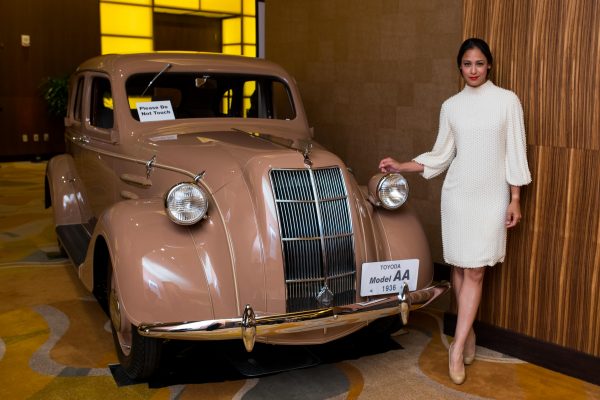
Many of our most influential companies have surprising beginnings. For example, Apple began in a garage and Amazon started by only selling books. Toyota, known today for its cars, actually began with textiles. At Toyota of Plano, we're proud of this unique history. We try every day to live up to Toyota's legacy. Let's explore Toyota's journey from making looms to crafting world-class cars.
A Humble Beginning: The Toyoda Automatic Loom Works
Kiichiro Toyoda's story began not on the open road, but in weaving. Sakichi Toyoda, Kiichiro's father, was an inventor who, in 1926, designed the Toyoda Model G Automatic Loom. This loom was revolutionary, featuring the ability to stop automatically if a thread broke, ensuring higher quality textiles with less waste. The success of this invention provided the capital needed for the Toyoda family to venture into the automobile industry.
The Shift to Automobiles
By the 1930s, Kiichiro Toyoda recognized the growing potential of the automobile industry. He traveled to Europe and the U.S. to study automobile production, returning to Japan with insights and a vision. By 1935, Toyoda's first experimental vehicle, the A1, was completed, marking the beginning of a new era. Recognizing the need for a fresh brand identity, the company held a public competition to design a new logo. As a result, 'Toyoda' became 'Toyota,' a name that was visually simpler in Japanese script and symbolized a fresh start.
Global Expansion and Innovation
Toyota introduced the Crown in 1955, its first vehicle designed for the American market. The 1960s marked Toyota's expansion beyond Asia, setting its sights on European markets. The Corolla, introduced in 1966, became a best-seller, and its reliability paved the way for Toyota's esteemed reputation in international markets.
Toyota's history is filled with innovations. The 1970s saw the introduction of the Celica By the 1980s, Toyota introduced the luxury brand Lexus, setting a new benchmark in premium vehicles.
But perhaps one of Toyota's most notable contributions to the automotive industry came in the form of hybrid technology. In 1997, the world met the Toyota Prius, the first mass-produced hybrid car, showcasing Toyota's commitment to environmentally-friendly technologies.
Resilience and Adaptability: Toyota's Hallmarks
The 21st century brought challenges for every industry, and automotive was no exception. Through economic recessions, natural disasters, and changing market demands, Toyota showcased resilience and adaptability. The company continued to innovate, venturing into hydrogen fuel cell technology with the Mirai and expanding its footprint in the electric vehicle sector.
A Look Towards the Future
Today, as we cruise in our comfortable and high-tech Toyota vehicles, it's fascinating to think that this global automotive giant has its roots in the textile industry. From weaving threads to weaving dreams on the open road, Toyota's journey embodies innovation, vision, and perseverance.
If you're in Plano and seeking a Toyota that captures this rich legacy, look no further than Toyota of Plano. We offer top-notch vehicles, ensuring that every purchase connects you to Toyota's longstanding tradition of excellence.
